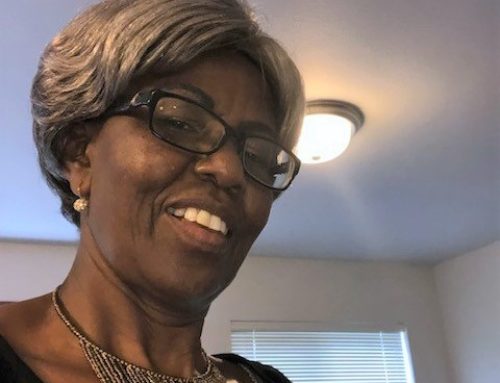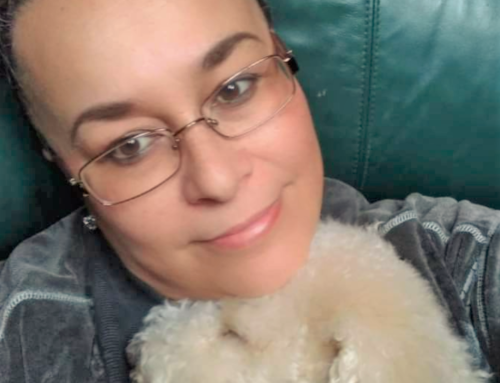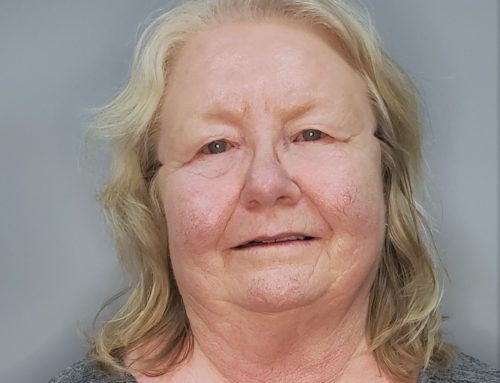Azieb Wendale is patient and persistent; two qualities that she calls on frequently in both her home and work lives. Seventeen years ago, in 2001, Azieb left her home in Ethiopia to join her mother who had immigrated to the U.S., settling in Seattle. Azieb’s mother had left when she was only 7 years old and she was raised by her grandmother, uncles, and aunts who all lived together under one roof. “In my culture, we take care of each other, said Azieb. “We are expected to help our elders, even those who are not our relatives.”
When Azieb came to the U.S. she left behind a boyfriend. She returned to Ethiopia to marry him after which papers were filed for her new husband to join her in Seattle. He was supposed to arrive in 2006 but his application was denied because, as Azieb explains it, the INS did not believe that their marriage was real. Azieb was determined to bring her husband home so she returned again to Ethiopia. She became pregnant, returned to Seattle, and hired an attorney. Finally, after 5 years of waiting, when her son was already 18 months-old, Azieb’s husband was permitted to join her in Seattle. Since then Azieb’s family has grown with the birth of a second child.
One of Azieb’s first jobs in Seattle was in a nursing home and she found this work to be unbearably sad. “In Ethiopia, we don’t have nursing homes because the older people live with the younger relatives who take care of them. Working in the nursing home was a good experience but it made me so sad,” she said. People died every day and it was hard to come to work knowing that a patient you saw yesterday may not be there today.”
The patience, hard work, and determination that Azieb showed during the years that she was separated from her husband, also shows in how she approaches caregiving. “A good caregiver is honest, patient and treats her clients with dignity,” said Azieb. “Our clients are not kids and it is important that we always encourage them to make choices and do as much as they can for themselves.”
Today Azieb works with 5 clients. Her shifts range from 12-hour over-night shifts to shorter four-hour shifts. In her 13 year history with Family Resource Home Care, she has had dozens of clients. One client, in particular, stands out in her mind.
“My client had medical problems. She did not want anyone around except me. I was already working for her 7 days a week when she got sick. She decided she would stop her medicines and did not want to eat. It was a very hard time. She was crying, and her husband was crying because he wanted her to fight to stay alive. When I was alone with her she said, ‘Azieb, close the door; close the windows; turn off the lights; take away the food.’ I understood that she was making a choice. I lit candles and put on soft music. I spoke to her husband and got him to understand that we could not know what his wife was feeling; that she was making a choice that was hers to make. Soon hospice started. She had two sons and one did not want to visit her. I spoke to him and he said he wanted to remember his mom from before she got sick. I told him that he must come and sit by her side and hold her hand. I convinced him, and he came. My client was able to have both her sons and husband with her. They all cried, and the son said to me, ‘You are an angel. We could not have done this without you.’ When my client died I did the things she had asked me to do. I washed her and dressed her in the clothes she had chosen. The family was very grateful, and I was honored that my client let me take care of her.”





